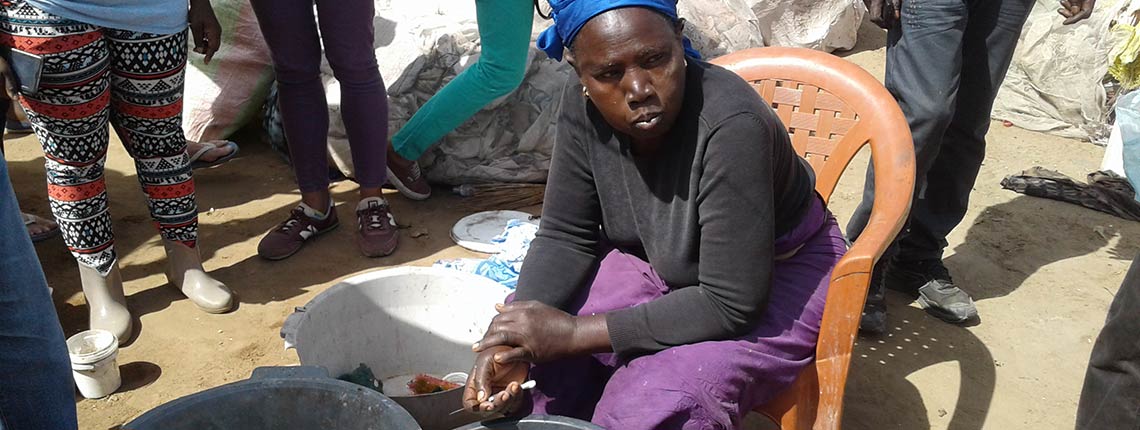Coura Ndiaye – or “Mother Coura” as people call her out of respect for her age and the number of years she has worked as a waste picker – is an honorary leader among waste pickers in the Mbeubeuss dumpsite, located 30 kilometres away from Dakar. Since 2000, Coura has been a member, and then leader, of the Association of Waste Pickers of Mbeubeuss, known as Bokk Diom. She is a firm believer of the importance of being organized – particularly for women – in order to defend waste pickers’ livelihoods and to improve their working conditions.
Like many women in Mbeubeuss, she found in the collection of recyclables a way to provide for her family's many needs. But this is becoming increasingly difficult now due to the COVID-19 pandemic.
“The income has completely decreased and/or disappeared for some of us. And if I tell you that even when we work, it is difficult to pay for prescriptions of CFA 3000 (5 USD), if that surprises you, then imagine how it is for us to cover our fixed expenses [like] rent, electricity, water, schooling.”
Although Mbeubeuss has remained open, sanitary measures have altered the recycling chain at the dump. “During this period of pandemic, workers could come to the dumpsite all day and leave with empty pockets or with small change. The buyers often had no money to buy our materials; employers reduced their staff; and our savings were burned through during the first period of hardship during the pandemic.”
Hard as the pandemic has been, Mother Coura flags growing concerns for workers’ livelihoods. Among them, the restructuring of the dumpsite led by the waste management agency (UCG) is affecting women waste pickers´ working conditions and safety. “For example, the road they built to get to the platform, this road is the cause of the flooding. Because this road is very high, if it rains, it flows directly onto us.”
The plan to close Mbeubeuss, part of the Senegalese government’s programme to improve the management of solid waste in the country (PROMOGED), is by far the greatest threat.
“If the UCG and PROMOGED persist in their stance, it is the end of us.”
Despite the potential displacement and income loss of these workers, the government refuses to include waste pickers in the solid waste management project or at the very least guarantee their means of subsistence.
To cope with these challenges, the association needs to become stronger and improve communication strategies between leaders and members to tackle challenges and advocacy needs, Mother Coura says.
But, she also highlights that they need help from the government. “I think that waste pickers simply need the UCG to improve their working conditions at the dump. In this sense, waste pickers are asking for their work to be more remunerative.”
“The state should help us and not the other way around. We are the first in this dumpsite, and we are the most legitimate to benefit from the dumpsite.”
* This story is based on an interview with Coura for round 2 of WIEGO’s COVID-19 Crisis and the Informal Economy Study. It was published with Coura’s consent.
